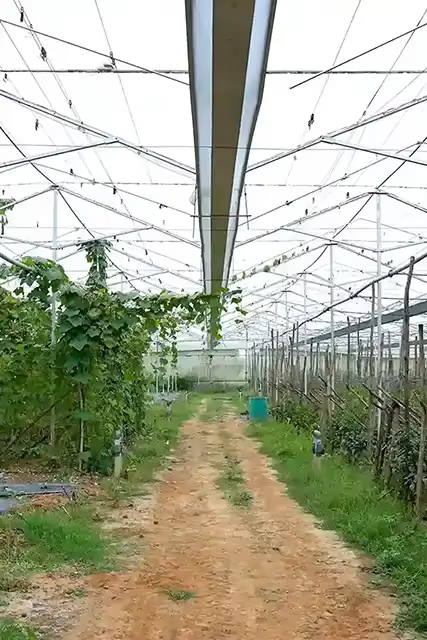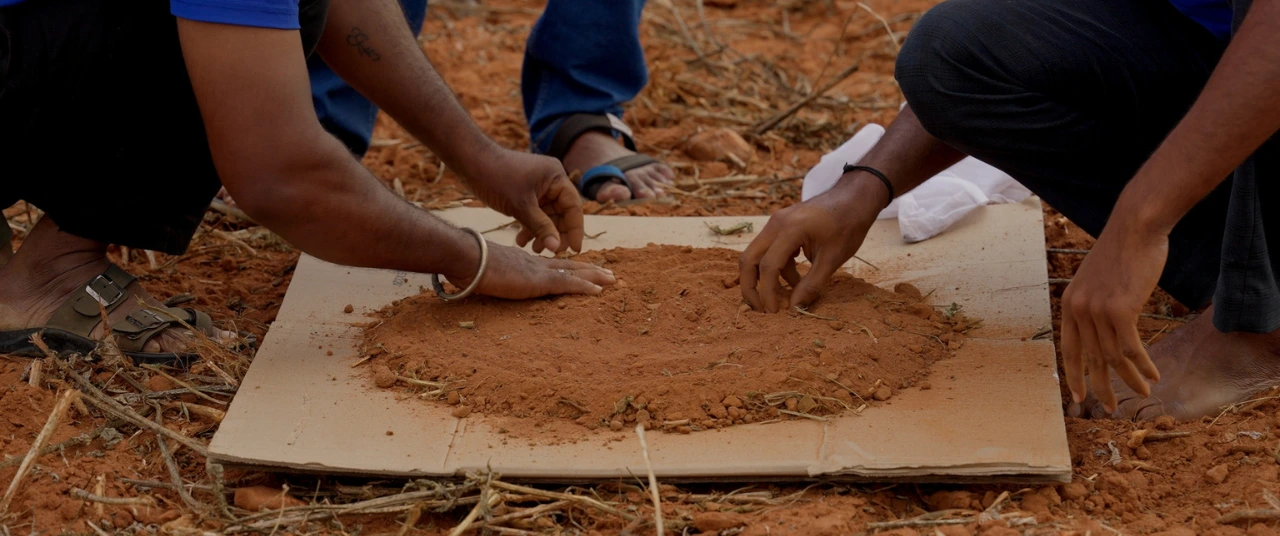Meet the engineer building a better food system from the ground up






Growing food is no easy feat. The elements–soil, water, air–must align perfectly with a plant’s needs; even minor deviations can be unforgiving. Understanding agriculture goes beyond mechanics; it requires an intimate knowledge of the land.
Farming knowledge can’t come from theory alone. Farmers need firsthand experience to address rising temperatures, erratic rains, and pest infestations. Organic farming, while often celebrated as a healthier and more sustainable approach, presents its own set of challenges. Each decision carries weight, and even a small misstep can result in hard, sometimes costly, lessons.
Despite these hurdles, many farmers are reimagining how we grow and distribute food, prioritising sustainability at every step. Organic methods are just one part of the equation. Another critical aspect is the role of middlemen–those who link farmers with consumers and shape market dynamics. While these intermediaries play a vital role, the current system often tilts the scales unfairly, leaving farmers at a disadvantage.
Addressing these imbalances requires systemic change, combining innovative farming practices with more equitable market structures.
Why Bhoomi?
Enter Bhoomi Farms. Founded by Shankar Venkataraman in 2015, they're committed to delivering chemical-free produce you can trust. His farming experience in the US showed him how middlemen's practices often meant organic farmers couldn't get fair prices for their crops. So he took a different path. Instead of following the usual chemical-heavy farming methods, he stepped back, rethought his approach, and brought in agronomists to understand how different farming practices affect the land.
The idea for the venture came from the difficulty of tracing where food in India really comes from. When Venkataraman’s six-month-old child fell seriously ill, he started researching how food is grown and its impact on health. He realised that poor soil health leads to food lacking in nutrients. If soil degradation continues, the global food system could be at risk.

Restoring balance
Earth (or Bhoomi) is much more than just soil beneath our feet–it's a complex living system that's vital for life as we know it. This so-called ‘dirt’ transforms waste into nutrients, helps regulate our climate by managing carbon dioxide, and naturally purifies our air and water. But here's the thing: our soil is in trouble. With intensive farming, expanding cities and increasing concrete cover, we're putting immense pressure on this sophisticated system. Vital species are disappearing, putting this critical ecosystem at risk.
Venkataraman recognised the urgency of soil preservation early on. He assembled a team of agronomists–now a dozen strong–to prioritise soil health. In conventional farming, soil life suffers from harmful practices. Tillage, for instance, strips soil of organic matter, depletes moisture, and harms biodiversity. Pollution and heavy machinery add further strain.
Restoring soil health by eliminating chemicals and encouraging biodiversity is a long, demanding process. It tests patience and can make farmers second-guess their decisions. Venkataraman’s team helps farmers understand soil and crop needs, ensuring their land reaches its full potential. The payoff? High-quality, sustainable food and a healthier planet.
Farming school
Bhoomi is putting years of hands-on experience to good use. They're taking everything they've learned about composting, natural farming inputs, crop rotation, mixed planting and proper bed preparation to help other farmers switch to organic methods. "We want to be a farming school," says Venkataraman, whose farm grows more than 100 different fruits and vegetables for people wanting fresh, local produce.
Drawing from his background as an engineer, Venkataraman focuses on four essential farming elements:
- Using cover crops
- Making top-quality compost
- Following good soil management
- Working with the right seeds and climate conditions

Making ends meet
"Farming is very hard to make ends meet," says Venkataraman.
The climate crisis has made irregular rainfall a common problem. Just months ago, unexpected downpours at Bhoomi Farms in Thali, Tamil Nadu, destroyed crops worth Rs 30 lakhs. "I want to continue hoping despite the odds," he says. To protect against unpredictable weather and pests, the farm now uses greenhouses.

When Bhoomi first started, the team planned to build greenhouses across 200 acres. But with costs reaching Rs 130 crores and profits taking 10-15 years to materialise, this wasn't practical. So Venkataraman scaled down his plans.
Despite these challenges, he remains determined to adapt greenhouse techniques for smaller farms. “Farming is a process,” he says. “Bhoomi is a minimum 20-year journey.”
(Image Credits: Sandeep S, Sreejith M, Shreyas S)
Explore other topics
References











